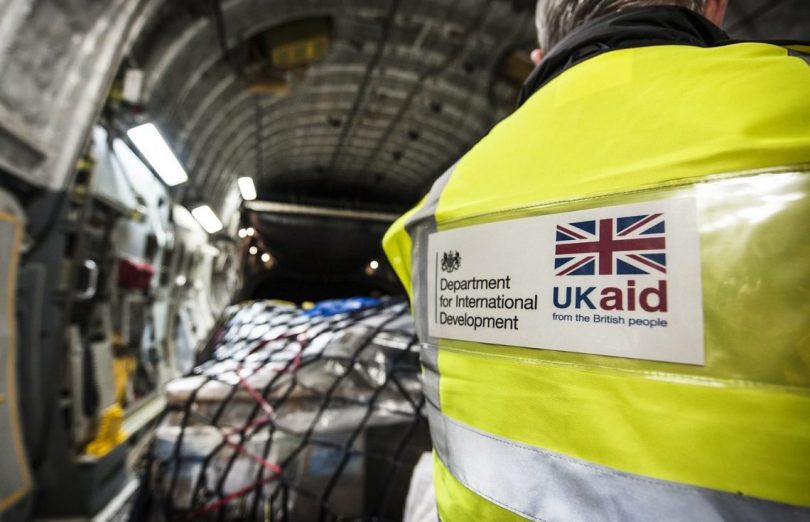The dissolution of the UK’s Department for International Development (DFID) is a strategic error, but one that can be lessened by learning from Australian experience that emerged in a review of the DFAT-AusAID integration I published last year.
There are two crucial questions concerning the UK integration: What does the UK government want to achieve? And what is the stress-tested plan for making sure its goals are met?
Over several years the UK government has pursued ODA rule changes to allow more peacekeeping, demining and other security sector spending. It has also promoted greater civil-military operations in emergencies.
There is a good case for all this, but also a clear risk development cooperation will be captured and securitised. That risk has now risen with the Prime Minister Boris Johnson having justified the abolition of DFID as paving the way for the redirection of UK assistance to Eastern Europe on security grounds.
Despite the PM’s candour, the UK Foreign Minister has claimed that the merger “is about placing our world-class aid programme at the beating heart of foreign policy decision making”. Similarly, the International Development Minister stated that the merger should enhance the UK’s international reputation and influence.
That is a confusing mix of objectives. The government needs to be very frank about what it wants and organise to achieve it.
Australia’s biggest mistake when it abolished AusAID at the end of 2013 was to fail to frame Asia-Pacific development as a key national interest to be vigorously pursued by multiple means, including clever use of ODA. That would have moved Australian policy decisively beyond aid, created a unity of purpose and a rigour that would have demanded more of both development professionals and diplomats.
We missed our moment to meet the future.
There is no doubt that structural integration can be helpful where common diplomatic and development goals can be established. The DFAT integration review identified better joined up consular, humanitarian and defence responses to emergencies. And on the multilateral side, integration can be relatively seamless, efficient and productive. Bilateral assistance is another matter.
In DFAT, development cooperation was relegated to a set of transactional tools to support miscellaneous diplomatic ends. Money and policy responsibility were disbursed across the entire department, making cohesive management extremely difficult. Principal responsibility for bilateral programs was vested in already overstretched Heads of Mission.
In a further error, development capability was deliberately stripped out. And as much expertise again leached out over several years because staff felt undervalued. Since integration, around 2,000 years of development experience has been lost, including senior local staff with unparalleled networks, critical to building influential bilateral relationships.
It will be hard for the Foreign, Commonwealth and Development Office to retain the development expertise it needs, but it will have a much better chance if staff feel recognised, valued and influential in decision-making. It has made a good symbolic start by getting development into the title of the new organisation.
Australia’s whole-of-government Pacific Step-up shows what is possible with integration. A pro-development, beyond aid agenda that has unlocked new economic opportunity for islanders, especially through seasonal work and remittances.
However, this positive change of approach has been more driven by strategic competition than a forward-looking combination of development and diplomatic nous. For that, one would need an empowered whole-of-department strategy, policy and budget team. Without such a body and the evidence and arguments it might advance, the government may be prone to big strategic errors.
For example, in order to accomplish its Pacific Step-up, with a total ODA budget 25% less than it used to be, and fewer skills, Australia has begun a retreat from Southeast Asia and has already withdrawn further afield.
Consequently, a lack of development policy engagement now leaves us on the sidelines as ASEAN leaders debate the region’s future relations, governance and economic systems. It is not surprising the US Ambassador has told us we are not doing enough.
The biggest strategic story of the past 50 years is how wealth and power have shifted beyond the Europeans, their satellites and successors (that’s us). The enormous adjustments this requires are only just beginning.
A clever country might put a premium on trying to understand that transformation and position to manage the risk and opportunity it offers, drawing on intensive development analysis and experience to better inform its diplomacy and strategic posture. It would value DFID highly.
However, the countries of the Anglosphere have baulked at that, choosing instead the militarisation of international relations. I suspect, in part, that is because we are not yet ready to face our changed status.
Ironically, the answer to the question ‘Who needs aid?’ is that we do.
We need international cooperation to address crises of the global commons. We need it to build relationships with suddenly powerful players we have neglected. We need it to deal ourselves into the reengineering of global and regional order that is happening apace. And most of all we need it to preserve peaceful cooperation as the better alternative to the growing advocates of conflict.
It’s a long shot, but the UK has a chance to get this right. It could combine and reinvent both its diplomacy and development cooperation in pursuit of shared interests.
At the very least, the UK should do what Australia did not do and debate thoroughly and openly how to best reorganise and combine its development work and diplomacy for a much more challenging future.
Read the author’s five-year review of the DFAT-AusAID integration, published by the Development Policy Centre in 2019, here.



Leave a Comment